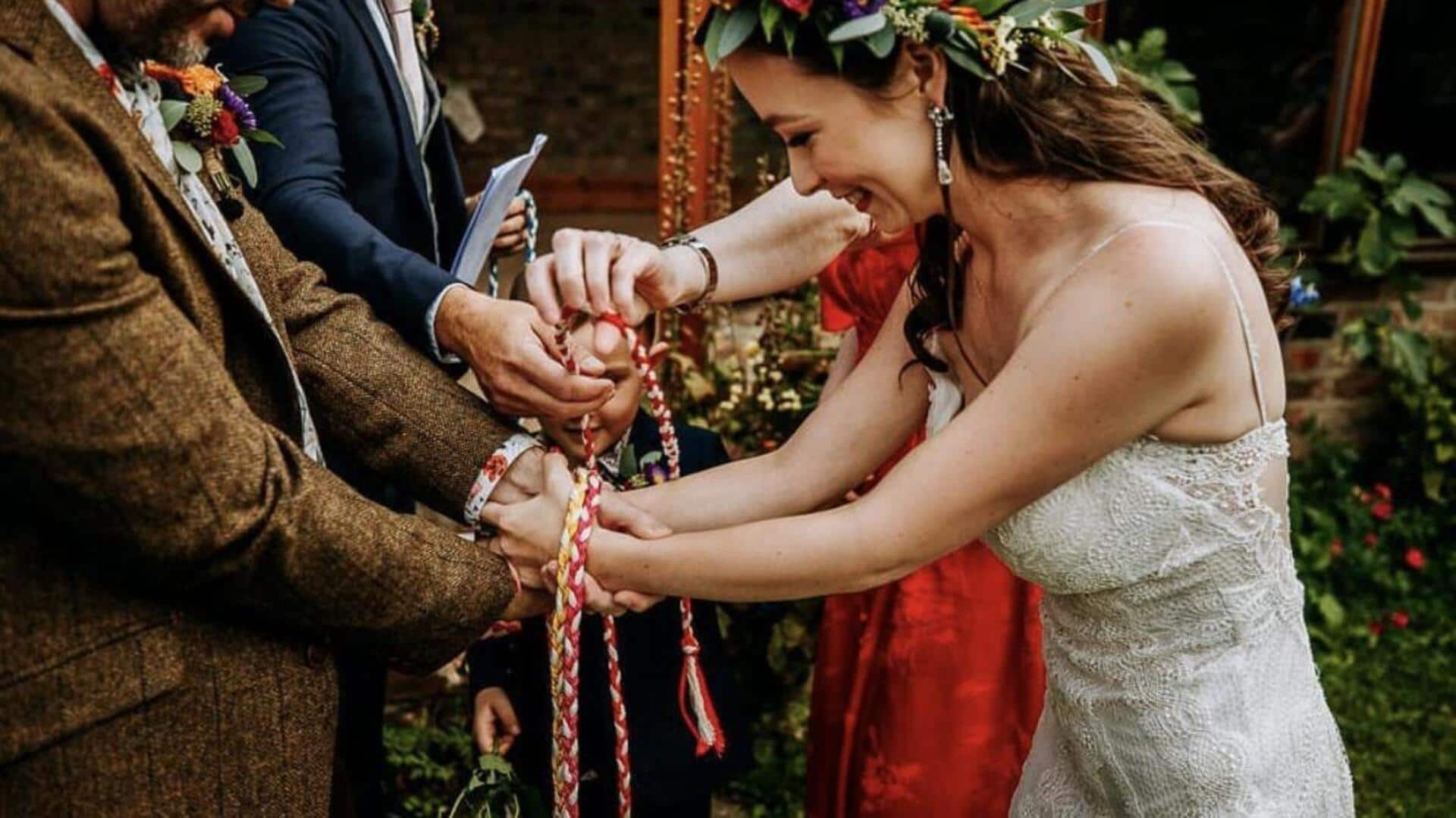
Unique wedding customs from Wales
What's the story
Wales has a rich cultural heritage, and its wedding customs are no different. The traditions, which have been passed down through generations, give us a glimpse into the values and beliefs of the Welsh people. From symbolic acts to community participation, these customs make weddings in Wales unique. Knowing these traditions can give you a deeper insight into Welsh culture and its time-honored practices.
#1
The tradition of hand-fasting
Hand-fasting is an ancient custom that has been practiced in Wales for centuries. It involves binding the couple's hands together with a cord or ribbon during the ceremony. This act symbolizes the couple's union and commitment to each other. Hand-fasting can be performed multiple times throughout the ceremony, each representing different vows or promises made by the couple.
#2
The role of the 'bride's cake'
In Welsh weddings, the bride's cake is an important tradition. Unlike modern wedding cakes, the bride's cake is usually a simple fruitcake that is sliced and shared among guests after the ceremony. It symbolizes good luck and prosperity for the newlyweds. Guests often take pieces home as tokens of good fortune.
#3
Singing traditional hymns
Music is an integral part of Welsh culture, and traditional hymns are often sung at weddings. These hymns are usually sung in Welsh and have deep-rooted meanings that resonate with love, unity, and community spirit. The singing brings everyone together, creating an atmosphere of joy and celebration.
#4
'Cymorth' - Community support
Cymorth is a community support system that comes into play during weddings in Wales. It is where family members, friends, and neighbors come together to help with various aspects of planning and executing a wedding ceremony. From preparing food to decorating venues, cymorth emphasizes community bonds and collective effort.
#5
The significance of 'Dai Capel'
"Dai capel translates to "from the chapel" and refers to the practice of couples visiting local chapels before their wedding day to seek blessings or guidance. This tradition highlights the importance of spirituality in culture, even if many modern couples opt for secular ceremonies.